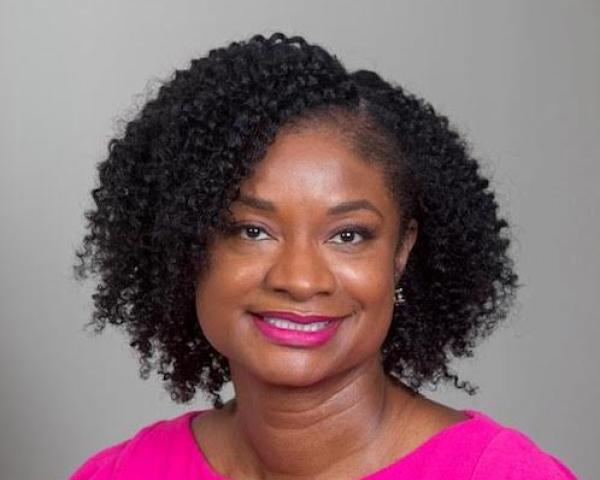KEY TAKEAWAYS:
--While many are feeling "DEI fatigue" after years of effort, companies must show employees that they have a rewarding career ahead of them and help them see how they're making progress on their path.
--Companies must build a culture that encourages everyone on the team to share their real opinions and bring their authentic selves to work. That means monitoring lots of data -- but not just the data.
--Firms need to be more consistent about messaging, starting with recruitment and extending through the whole employment life cycle.
--And we're all in this together, so companies should share best practices with each.
----------
What does it take to achieve a fully inclusive industry?
While we’ve tried to tackle this question for more than a decade as an industry, the keys to continued progress may finally be getting a bit clearer.
Sustaining momentum on diversity, equity and inclusion (DEI) efforts, as well as introducing initiatives to recruit and develop the workforce of tomorrow, seems to hinge on three factors: workplace experience, company culture and a consistent approach. Those factors, in tandem with a collaborative industry effort, could be key.
The challenges before us
Not all companies within our industry have made the same level of progress related to DEI initiatives. Some have been working on their DEI initiatives for more than a decade, while others just began implementing employee resource groups (ERGs) and other practices during the pandemic. Across different levels of experience and DEI success, though, we do see similar challenges.
The need to bring new talent into our industry remains paramount, as does breaking down barriers to leadership positions for diverse populations. Lately, one of the biggest challenges has been “DEI fatigue.” Industry professionals have expressed a lack of interest in continuing the conversation on DEI because they feel as though they have been inundated with information on the subject in the past few years.
What can we do to combat these roadblocks? We have to connect the puzzle pieces.
The value of a good workplace experience
We want to build a strong workplace where our people feel they are engaged in a rewarding career with a positive trajectory and where they can clearly see and recognize the progress they’re making. Too many times, we’ve heard from professionals leaving insurance that they couldn’t see a path to the top or understand the value of the work they were doing.
At QBE, we respond to this challenge by providing our new team members with an opportunity to begin building their networks and to understand QBE as an enterprise – the big picture – upon hire. We want them to be able to visualize what the business and the work truly involve, the impact it makes, the role they will play as their career develops and their financial prospects. We offer prospective and early career employees the opportunity to comprehend the full range of our company’s products and services and the impact we have on our colleagues, the environment and society. We even have them meet with our executives to gain insight and advice.
Companies that demonstrate a meaningful company experience will help prospective employees understand what a career in insurance has to offer them and how it can fit their skills and career goals. We want all companies in the industry to offer interns, new hires, experienced professionals or people returning to the workforce positions that will expose them to a range of positions across the enterprise.
See also: The Many Facets of DEI
How company culture fits in
Offering a valuable and inspiring career is only one part of the puzzle. Today’s new hires also want to ensure they are lending their talents to a company that invests in its culture.
We have all heard about the value of good culture in the workplace, and all our businesses are looking for better ways to recruit and retain diverse talent. Many are collecting data to document their progress. That’s great, but when an organization reviews their data in terms of culture, representation, attrition and engagement surveys, they should also look beyond the numbers.
Even if most responses are positive, we need to look at where the minority comes from. What are they saying or not saying? We want to build a culture that encourages all of our team to share their real opinions and bring their authentic selves to work. This is what creates an inclusive, psychologically safe culture.
For example, in the wake of George Floyd’s murder, our first step was to check in on the mental health and wellness of our team. We asked if they felt comfortable sharing their own perspectives and ideas, and if our company culture felt supportive regardless of where they wanted to take their lives and careers from there. Just posing the questions began a new dialogue for our culture, and it demonstrated we as a company not only cared about them but understood the criticality of a culture of belonging and inclusion.
With this effort, we were not necessarily just referring to harassment or discrimination or topical issues. We want our staff to always feel comfortable sharing new ideas and different ways of thinking. We want them to feel comfortable speaking up about anything in the workplace, even concerns about leadership or the workplace itself. Part of that requires additional understanding from our teams. Some team members may be happy to share their thoughts on a Teams call; others may need more privacy, because diversity also entails "how" our people want to communicate.
We need to spend time working with our staff to ensure they feel company culture is psychologically safe. A psychologically safe environment will provide insurance industry professionals with a workplace where they feel happy, comfortable and confident.
Consistency, consistency, consistency
While these first two pieces are essential to progressing with the puzzle, nothing can be accomplished without a consistent effort – and here, we have work to do.
For example, consistency could improve the recruiting process, helping prospective employees to better visualize a future in our industry.
QBE partners with area universities to offer students scholarships centered on DEI and internships. Over time, however, we noticed a gap in interest and understanding of the insurance industry.
When I first visited campuses to gauge interest in insurance, I found students had a wide range of misperceptions about insurance. Several expressed immediately that they did not want a career in sales or a boring desk job. That’s what they had understood insurance to be. Industry leaders need to correct these misconceptions. Insurance has a path for everyone regardless of course of study and interests.
We need to bring a more consistent experience in the employee life cycle, starting with recruitment and selection. Consistent job offerings and messaging around those positions will ensure that prospective employees understand what our business really does and how they could contribute.
Similarly, the efforts toward enhancing DEI in the workplace that are working should be shared and promoted. Sharing progress and demonstrating results will help to alleviate DEI fatigue. And of course, consistent and regular communications on our industry’s dedication to inclusion and belonging, starting from the recruitment phase and going throughout the lifecycle of the career, will attract new talent and inspire other business leaders to adopt similar practices.
Finally, we also need consistency in the labeling of DEI within our companies. DEI is woven into our organization’s values and mission; it’s not a stand-alone department. We want inclusion to be embedded throughout the entire employee lifecycle: attraction, recruitment, onboarding, development, retention and separation.
See also: We Must Be Diverse by Design
Working together as an industry
While we laid out some critical pieces to enhancing and furthering DEI within our industry, we can’t do it alone. Collaboration will be essential.
We all have valuable ideas to share, and together we can progress toward a diverse and inclusive insurance industry. Events such as the Insurance Industry Charitable Foundation (IICF)’s Inclusion in Insurance Global Conference in New York City from June 13 – 15 allow us to continue the conversation as an industry, share our own practices and struggles and showcase diverse talent. We need these events and organizations like IICF to support us as a unifying industry voice.
Today, we can get started on meeting industry challenges through a dedication to building out a better company experience, enhanced culture and a consistency in our approach.






